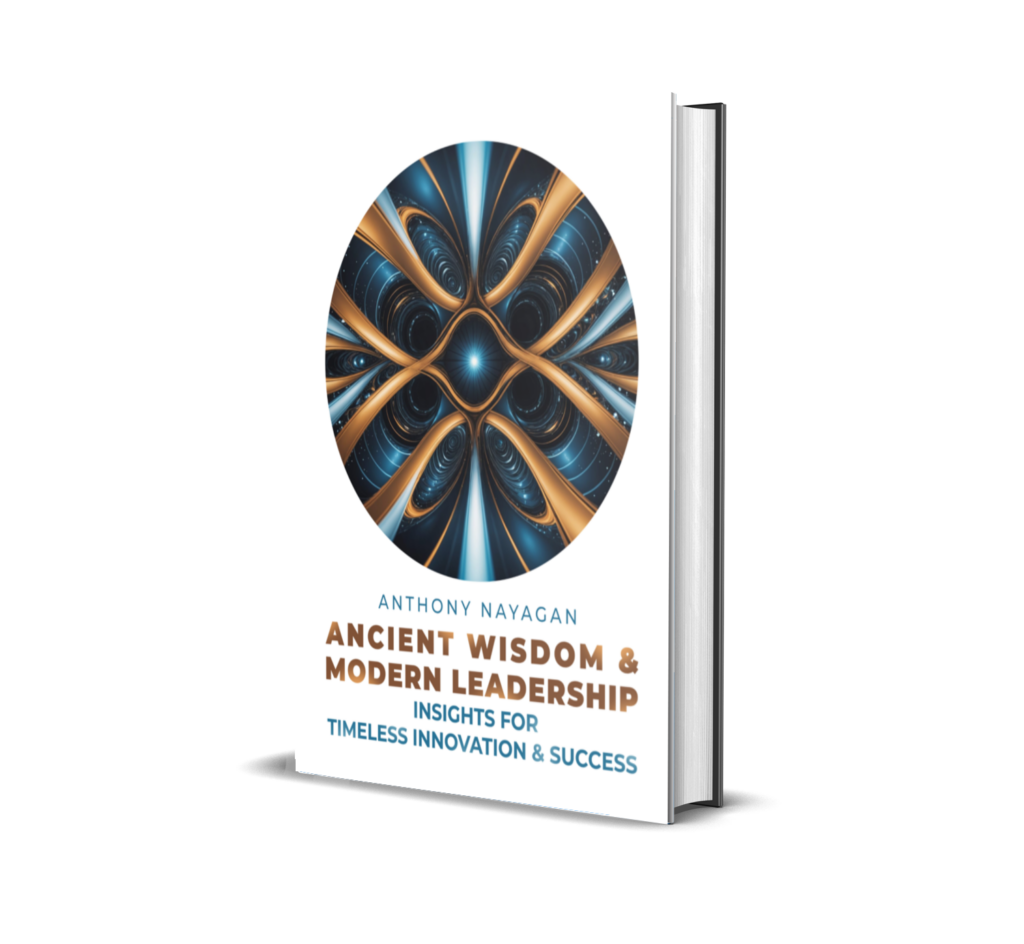Endorsement

Jonathan R. Tuck BEng Ph.D.
Author of “A Theory of Everything – Things I Wish I’d Known at Your Age”
I absolutely love Anthony Nayagan’s ideologies and wisdom discussed in this book. The book appears to clearly and concisely summarise many of the fundamental true natural law principles contained within the religious texts, and rediscovers their connections with truthful science.
In a world where science often takes centre stage, the intersection between scientific discovery and spiritual understanding remains a subject of profound intrigue. This book by Anthony Nayagan masterfully bridges this gap, offering a groundbreaking perspective that resonates with thought leaders, spiritual seekers, and scientists alike. His exploration of how human output, including creation and innovation, can be viewed as a partnership with God is not just innovative but transformative. This endorsement seeks to highlight the key elements of Nayagan’s philosophy and why it is a must-read for anyone looking to explore the deeper connections between science, spirituality, and theistic activism.
According to Nayagan, every natural creation reflects the divine nature of God. The complexities and beauties found in the natural world are not merely accidents of nature but are manifestations of a higher order. Science, in its pursuit of understanding, attempts to map out this divine order, to understand the laws that govern the universe, and in doing so, it inadvertently reflects God’s nature as well.
Anthony Nayagan offers a unique and compelling perspective that challenges conventional thought. His philosophy, which positions human creativity and innovation as a divine act in partnership with God, is groundbreaking. Nayagan’s work resonates deeply with thought leaders who are looking for ways to integrate spirituality with practical, worldly achievements. His ideas encourage leaders to view their work not just as a series of tasks but as a higher calling — an opportunity to participate in the divine process of creation.

In Nayagan’s view, human creativity is not just a product of intelligence or hard work. It is a divine act, a partnership between humanity and God. When we create — whether it’s a piece of art, a technological innovation, or a new idea — we are participating in God’s ongoing creation of the world. This perspective shifts the focus from human ego to divine collaboration, encouraging a sense of humility and reverence in the creative process.
One of the most compelling aspects of Nayagan’s work is his ability to integrate theology, spirituality, and science into a cohesive philosophy. He does not see these fields as separate or contradictory but as complementary avenues to understanding the divine. By bridging these disciplines, Nayagan offers a more holistic approach to knowledge and wisdom, one that is deeply rooted in spiritual understanding yet fully engaged with the scientific world.
Nayagan introduces the concept of theistic activism, which offers new hope in the search for meaning and purpose. Unlike traditional scientific views that often portray the universe as a mechanical, impersonal system, theistic activism recognizes the role of divine consciousness in the creation and sustenance of the universe. This approach challenges the deterministic worldview and offers a more dynamic, spiritually enriched perspective on life.
Classical schools often explain creation as a result of cause-and-effect relationships — a chain of interactions between matter and energy. Nayagan, however, challenges this view by introducing the idea that creation is not just a mechanical process but a function of consciousness. He draws on the principles of quantum mechanics to argue that the universe is not merely a machine but a living, conscious entity. This conscious order of creation, as Nayagan describes it, transcends the traditional cause-and-effect paradigm.
Central to Nayagan’s philosophy is the concept of the Quantum Field — a field of pure potentiality and consciousness that underlies all creation. According to Nayagan, it is the Quantum Field that creates, sustains, and allows matter to transition through its life cycle. This field is not just a scientific concept but a spiritual one, representing the conscious order that governs the universe. By understanding and aligning with this field, humanity can tap into the deeper, divine aspects of creation.
Nayagan also critiques the human tendency to rely on binary observations—viewing the world in terms of dualities such as good and evil, success and failure, creation and destruction. He argues that this binary thinking limits our understanding of creation, which is far more complex and rooted in consciousness. Human-created outcomes often ignore the conscious order of creation, leading to imbalances and unintended consequences. Nayagan emphasizes the need to consider the spiritual and conscious aspects of creation to achieve true harmony and innovation.
Nayagan’s approach to theistic activism is deeply informed by the ancient teachings of the Vedas. He draws on the Vedic concept that creation is the Unmanifest realizing as manifested reality — a process where pure consciousness evolves into a created component. By connecting these ancient teachings with modern scientific concepts, Nayagan provides a unique perspective on creation that transcends both time and culture.
In his teachings, Nayagan advocates for a form of meditation that goes beyond mindfulness. He encourages practitioners to enter a state of “pure observation,” where they transcend the mind’s activities and connect with the deeper layers of consciousness. This practice aligns with his philosophy of theistic activism, as it allows individuals to observe the Will of God in its unmanifest reality, evolving into manifest form. Through this practice, individuals can tap into the divine creativity that is at the heart of all creation.
Nayagan’s exploration of quantum mechanics provides a profound understanding of mankind as created in the image and likeness of God. He argues that just as quantum mechanics reveals the underlying consciousness of the universe, so too does the human soul reflect the divine consciousness. By understanding this connection, we can better appreciate our role in the divine process of creation and align our actions with the will of God.
Jonathan R. Tuck BEng Ph.D.
Author of “A Theory of Everything – Things I Wish I’d Known at Your Age”